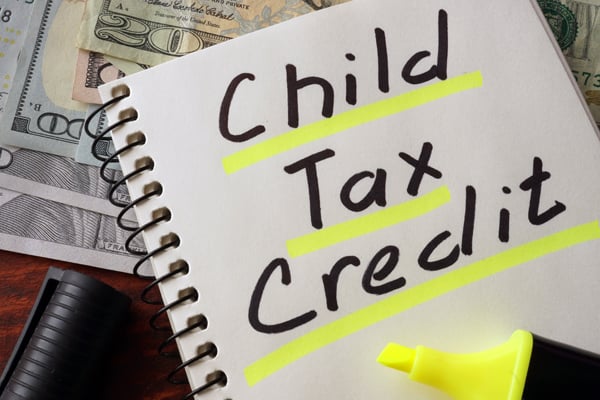With the new year and many state legislative sessions just around the corner, most state tax and budget debates are just getting started. Arkansas will be among the states working to improve their roads and other infrastructure. Massachusetts will have to deal with revenue losses due to a misguided tax-cut trigger put in place in prior years. Maryland and South Dakota will be two of many states facing teacher pay shortages and other education funding needs. And debates over the legalization and taxation of cannabis will likely continue in California, Kentucky, New Jersey, and beyond. Utah lawmakers, on the other hand, are just now putting their 2019 tax debates to bed, having touched on many of the major tax themes of the year, both good and bad: enacting and expanding Earned Income Tax Credits (EITCs) and other refundable tax credits, expanding the sales tax base and cutting the personal and corporate income tax rates, and more. We at ITEP will be back to our regular weekly Rundown schedule in the new year!
— MEG WIEHE, ITEP Deputy Director, @megwiehe
Major State Tax Proposals and Developments
- In a flurry of end-of-year activity, the UTAH legislative task force on tax reform recommended a controversial and larger than previously considered tax bill to the legislature. Gov. Herbert called a special session, and lawmakers signed off on the $160 million net tax cut. The bill cuts the personal income tax rate, partially offsetting it with increases to the sales tax including taxing food at the full general sales tax rate (offset by a refundable tax credit for eligible families) and expanding the sales tax to include some services. The bill also notably enacted a 10% EITC for qualifying individuals in the state’s Intergenerational Poverty cohort (becoming the 30th state to enact an EITC) and exempted the sale of menstrual products from the sales tax. For a further break down of the bill, see Voices for Utah Children‘s post-session analysis. Unhappy with the pace at which the reform bill moved and insufficient opportunities to debate what was at stake, two citizen referenda have been filed that would subject the fate of the law to voter approval. — LISA CHRISTENSEN GEE
State Roundup
- ARKANSAS Gov. Asa Hutchinson has set road funding as his top priority for his re-election campaign in advance of a vote on a constitutional amendment that would make permanent a 0.5% sales tax for highways and roads.
- Voters will not face dueling tax measures on the November 2020 ballot in CALIFORNIA as the school board associations have decided to wait to pursue their $15 billion tax increase for K-12 education and community colleges.
- An effort is underway to include immigrant workers in CALIFORNIA’s EITC in the next budget year. Currently, workers with ITINS (Individual Taxpayer Identification Numbers) but not a Social Security number can’t receive the credit despite otherwise being eligible.
- CALIFORNIA’s Legislative Analyst Office has recommended the state reform how it taxes marijuana—varying rates on potency of the product rather than weight but not recommending the industry sought after rate cut. Meanwhile, a lawmaker in KENTUCKY has proposed legislation that would legalize marijuana.
- Lawmakers in IDAHO are discussing options for cutting property taxes in a context of increasing property values and a record number of school bond measures.
- IOWA’s Senate Majority Leader is promising that if the state raises revenue for longstanding water quality needs through a sales tax increase (which will mostly affect low- and middle-income families), he’ll seek to cut taxes on high-income Iowans in response.
- The KANSAS Governor’s Counsel on Tax Reform has recently recommended restoring the refundability of the state’s food tax credit, reactivating a fund intended to offset local property taxes, and expanding the online sales tax to marketplace sellers and digital products. Which of these proposals may become law during the 2020 session? It’s hard to predict, but what is expected is continued clashes over differing tax priorities between conservative lawmakers and Gov. Laura Kelly.
- It’s back to the drawing board in LOUISIANA when it comes to easing efforts to collect sales taxes across 64 different parishes as the state supreme court ruled local funding for the state board is unconstitutional.
- MARYLAND Gov. Larry Hogan and lawmakers agree on the need for school construction funds but disagree on how to improve actual education outcomes. The legislature is largely on board with recommendations of the “Kirwan Commission,” which calls for improved investments in teachers, high-needs schools, pre-kindergarten, and career programs. Gov. Hogan proposes instead to single out “failing schools” and ask local residents to improve them without addressing their funding needs.
- MASSACHUSETTS officials recently announced that revenue triggers to drop the state’s personal income tax rate and reinstate a charitable deduction have been hit. The new 5 percent income tax rate, down most recently from 5.05 percent, is estimated to cost the state $185 million in fiscal year 2021. The state charitable deduction is expected to cost the state an additional $300 million a year.
- Lawmakers in MICHIGAN have legalized online gambling and extended the online sales tax to marketplace facilitators such as Amazon, Wayfair, and Overstock.
- The reciprocity agreement that allowed residents of MINNESOTA or WISCONSIN who worked in the other state to only file a single tax return has ended. Wisconsin has been in arears in tax payments owed, and officials in Minnesota are unwilling to continue the arrangement when facing their own budget deficit.
- NEW JERSEY lawmakers have approved a measure to let voters choose in 2020 whether to legalize and tax recreational cannabis.
- A bipartisan bill to make some changes to NEW MEXICO’s gross receipts tax is taking shape in advance of the 2020 legislative session. The bill seeks to lower the GRT rate and to exempt the use of outside accounting services by small firms to address “pyramiding” issues. Unlike previous years, the proposal does not close some of the many loopholes in the GRT base to fund the rate reduction and new exemption. Lawmakers plan to use surplus funding from oil and gas revenues to fund the tax change.
- As PENNSYLVANIA state lawmakers weigh property tax options, Pittsburgh public school advocates ask for a tax increase. Meanwhile, an OHIO state lawmaker has proposed limits on property tax increases.
- SOUTH DAKOTA Gov. Kristi Noem’s budget proposal includes no pay adjustments for teachers and other public employees. This is troubling the education community, which fought hard for 2016 changes to address the state’s worst-in-the-nation teacher pay.
- VIRGINIA Gov. Ralph Northam is proposing tobacco and gasoline tax increases while eliminating vehicle safety inspections and reducing auto registration fees. These changes that won’t improve the state’s upside-down tax code but will help generate funding for other state priorities.
- The state of WISCONSIN plans to withhold tax subsidies from Foxconn until changes are made to the contract to reflect the company’s actual activities, which have deviated from the original terms since the largest tax incentive in history was extended to a business under the previous administration.
What We’re Reading
- A recent New York Times article reminds us of the ways in which the Child Tax Credit could be improved to benefit more struggling families and children. For steps that states could take right now, see our latest blog post.
- As the Chicago suburb Evanston is legalizing and taxing marijuana, it also plans to use the new revenue to fund reparations for black residents who have been disproportionately impacted by the policing of cannabis both locally and nationally. The Washington Post has the story.
- Read about how MINNESOTA exchanged a matching grant for low-income families to save for college with a tax break for the affluent (I.e. 529 plans).
- More than a third of all U.S. states getting a failing grade when it comes to transparency for economic development incentives according to a new report from PIRG.
- One consequence of declining taxes on corporations? Increased costs for American workers via increased reliance on the payroll tax. Saez and Zucman have the numbers.
- A spotlight on inequality:
- From the Economist, rethinking the numbers on inequality.
- From the NYT, growing inequality over the past four decades among major metropolitan regions illustrated.
- The Washington Post on staggering generational wealth deficits and the massive triumph of the rich.
If you like what you are seeing in the Rundown (or even if you don’t) please send any feedback or tips for future posts to Meg Wiehe at [email protected]. Click here to sign up to receive the Rundown via email.





